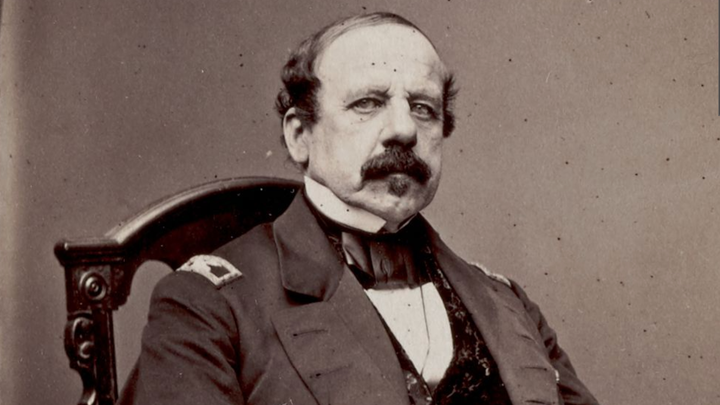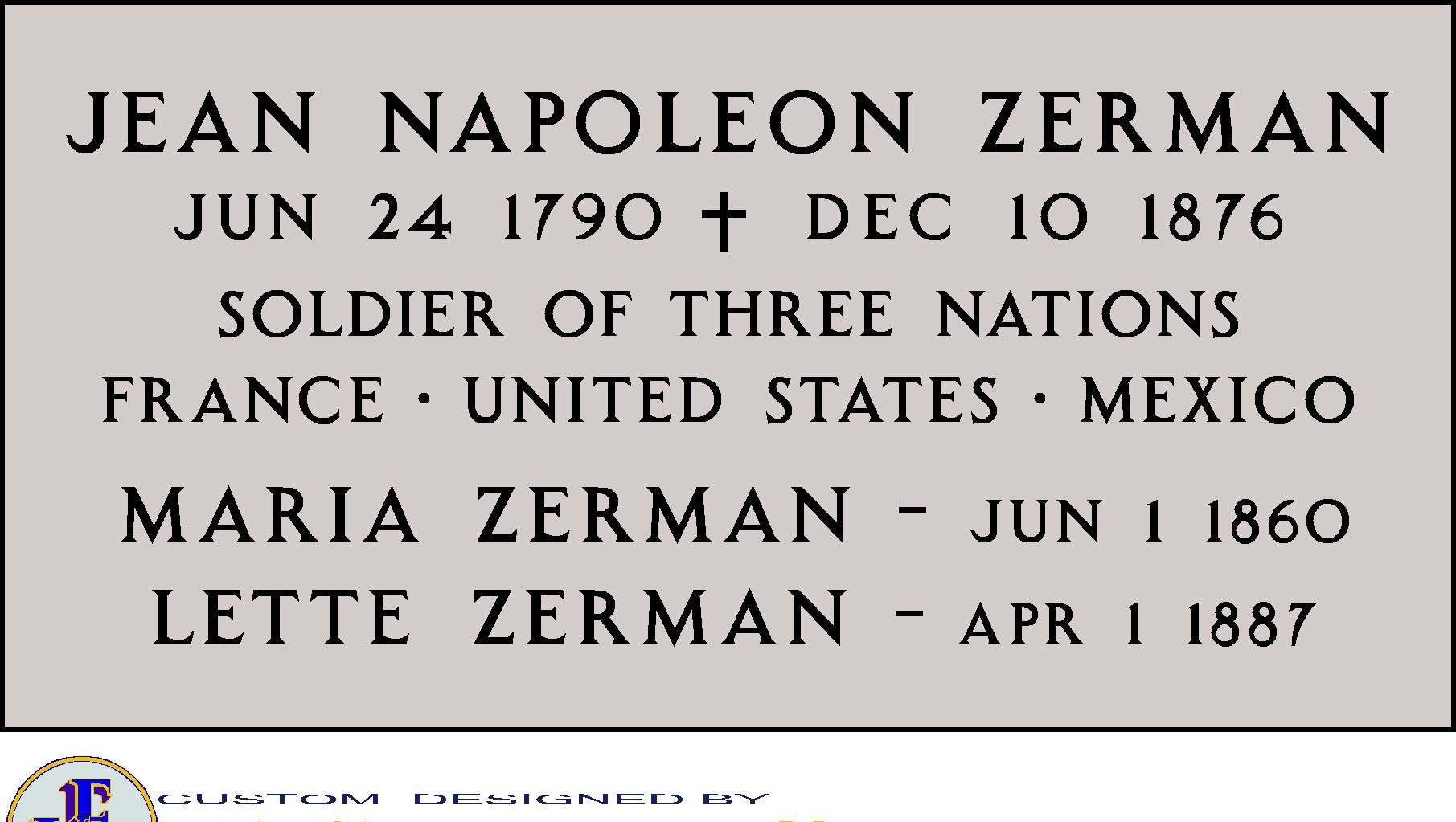
Jean Napoleon Zerman Headstone Fund
Donation protected
Jean Napoleon Zerman has been called a foreign agent, filibuster, Mexican admiral and chief of police, and all sorts of other names and titles, both favorable and unfavorable, but one title or word can’t be used to appropriately describe this enigmatic soldier of fortune. He had a knack for hairbreadth escapes and evaded execution on more than one occasion. Zerman spent a fair share of time in and out of prisons. President Abraham Lincoln nominated him a brigadier general of volunteers in 1862, and he nearly added American general to his extraordinary resume, but Congress had other plans. He now rests forgotten in an unmarked grave in San Francisco’s “City of the Dead.”
Giovanni Zerman (John in English) was born on June 24, 1790, in Venice, Italy. He joined the French Navy and was captured when the HMS Victorious intercepted and defeated the 74-gun Rivoli in 1812. After Zerman’s release, he supposedly commanded an Italian frigate attached to the French squadron at the Battle of Navarino, where he suffered a leg wound. He returned to Italy in 1830 and participated in a failed attempt to overthrow Austro-Hungarian rule. The Austrians arrested him and sentenced him to death for high treason in 1833, but commuted his sentence, and he served it out at Špilberk Castle’s infamous prison. Zerman reportedly worked as an agent for his former adversaries, and in 1842, a Spanish newspaper claimed the Austrian chancellor employed him.
In 1848, Zerman opened a ship ballast business in San Francisco, California. He also began to refer to himself as “Jean” instead of “John.” Never distant from intrigue, Zerman plotted with others to establish a provisional government in Baja California. When he landed in La Paz, the capital of Baja, the Mexican governor arrested him. Mexican troops escorted Zerman to Mexico City and the government tried him as a filibuster. After two years of imprisonment, the Mexican Supreme Court acquitted him of the charges and he returned to the United States a free man.
In August 1861, Major General John Charles Frémont appointed Zerman to his staff, reportedly to command a flotilla for a voyage down the Mississippi. The following month, Major General David Hunter appointed him inspector general of the 1st Division. Hunter also endorsed his promotion to brigadier general. “I am very anxious to enter immediately into active service in the vanguard of the Army,” Zerman wrote to Secretary of War Edwin B. Stanton, “where I am confident of rendering essential service.” Lincoln responded by nominating him a brigadier general of volunteers in March. But not everyone favored Zerman’s appointment.
The French ambassador, Henri Mercier, knew Zerman from his time in Spain and called him a “detected adventurer and imposter at the Court,” and stated, “he is a convicted swindler and forger, who has served in galleys and pined in the jails of Europe so often, that such facts ceased to be novelties worth mentioning.” In 1850, Zerman accosted the French consul general, Félix Lacoste, as he left his Wall St. office. Two New York police officers intervened and arrested him. As much as the French Consulate detested him, New York Senator Ira Harris and other influential friends came to Zerman’s defense. The Senate confirmed Zerman’s nomination on May 5, 1862, but the outrage generated by his appointment among the foreign diplomatic corps and others led Congress to recall it the following day.
“In the month of March you appointed me Brigadier General in May the Senate confirmed that appointment but the intrigue of foreign politicians caused a reconsideration which was Decided against me,” Zerman wrote to Lincoln in August. “Know with the draft you need good officers therefor Excellence I hope you will employ a man who has forty years of experience in the military career and who is disposed to sacrifice his life for our cause and whose Services will be satisfactory to your opinion.”
After he became embroiled in a blockage running scandal to supply arms to the Mexicans to use against the French, Zerman left for Mexico and offered his service to Emperor Maximilian as the chief of the secret police. In 1868, the Republican government expelled him from Mexico and he returned to the states. Two years later, a man attempted to assassinate him, firing 11 shots into his home, but failed.
On December 10, 1876, Jean Napoleon Zerman died of natural causes at the age of 86. He is buried next to his wife and granddaughter in an unmarked grave at Holy Cross Cemetery in Colma, California. The proposed headstone will honor all three.
The fundraiser will cover the total expense to produce and install the marker. (NOTE: The final headstone design will be amended to read “SOLDIER OF FOUR NATIONS” to include Italy.)

Organizer
Frank Jastrzembski
Organizer
Hartford, WI


